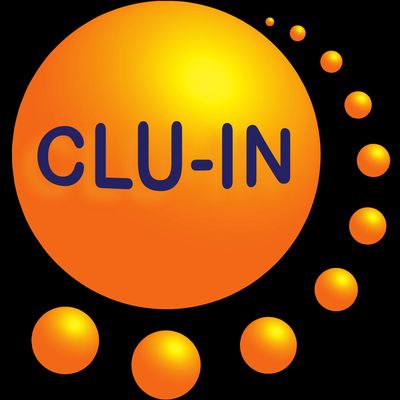Since 1998, The Contaminated Site Clean-Up Information (CLU-IN) website has presented Internet Seminars covering a wide variety of technical topics related to hazardous waste characterization, monitoring, and remediation. For select seminar topics offered since 2012, we are making complete video recordings available through our archives. This feed contains all video seminars archived in the last 12 months. For a complete list of seminars archived since 2000, please visit http://www.clu-in.org/live/archive/. Our Rehabilitation Act Notice for reasonable accommodation is available at http://www.clu-in.org/training/accommodation.cfm. CLU-IN was developed by the U.S. Environmental Protection Agency (EPA) but is intended as a forum for all waste remediation stakeholders. For more information and to view upcoming live offerings, please visit http://www.clu-in.org/live/. For a complete list of RSS feeds available on CLU-IN, please visit http://www.clu-in.org/rss/about/.
http://www.clu-in.org/live/archive
Risk Communication Strategies to Reduce Exposures and Improve Health: Session IV - Communication Toolkits to Communicate Environmental Risks (Oct 22, 2021)
The NIEHS Superfund Research Program (SRP) is hosting a Risk e-Learning webinar series focused on strategies to communicate potential environmental health risks to reduce exposures and improve health. The four-part series will showcase effective risk communication strategies and how they have been tailored to the needs of diverse communities. Presentations will also highlight first-hand experiences designing risk communication messages and campaigns, evaluating impact, and adapting communication strategies for different populations. The webinar series builds on an SRP workshop held in June 2021. The fourth and final session will feature work by SRP-funded researchers who are translating research into communication tools and tailoring them for specific community needs. These specialized tools work to successfully communicate health risks and increase environmental health literacy. BJ Cummings, M.A., and Lisa Hayward Watts, Ph.D., of the University of Washington SRP Center, will discuss how community and agency partners were involved in developing multilingual videos as the preferred tool for communication of risk from fishing in the Lower Duwamish Waterway Superfund Site. Presenters will emphasize the empowerment process used to select and develop the project. We will also discuss challenges in resolving different risk perspectives and messaging needs and how we've adapted our approach in subsequent projects. Julia Brody, Ph.D., of Silent Spring Institute, and Phil Brown, Ph.D., of the Northeastern University SRP Center, will describe the process of reporting back personal biomonitoring and environmental exposure results. Examples will range from their earliest paper-based methods to their Digital Exposure Environmental Report Back Interface (DERBI) in its computer and smartphone versions. They will also address elements of training clinicians to use report-back methods. Kathleen Gray, Ph.D., Sarah Yelton, M.S., and Megan Rodgers, M.E.A., of the University of North Carolina at Chapel Hill SRP Center will share their process for collaborating with diverse partners to communicate about potential environmental health risks. Featured projects address fish consumption advisories, toxic metals contamination of well water, and PFAS in water and air. To view this archive online or download the slides associated with this seminar, please visit http://www.clu-in.org/conf/tio/SRPREIH4_102221/
